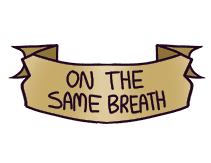Can children rooted in commitment to 4 breaths for 40 days raise their consciousness?
Can children rooted in commitment to 4 breaths for 40 days raise their consciousness?
Can their self-esteem grow wider and deeper and more elevated during the breath quest?

If self-esteem begins with self-control, can they have the self-control to focus on their breath for 4 minutes each day?

Self-esteem is generally defined as the extent to which we approve of and respect ourselves.

What if true self-esteem stems from mastery of the self? Regardless of our circumstances or physical abilities, when we have gained the ability to control our mental and emotional reactions during our breath quest, can we earn true self-approval and self-respect?

Can the deep breath initiative teach our children self-control? Self-control is a training of the mind and the nervous system, a habit developed through repetitive practice, so that our immediate emotional reaction to a situation is recognized and transformed into something that can serve the situation. This habit comes more easily to some children than others, but the practice remains the same in principle.

Can Tuning Into The Breath Teach Children to Observe their Playful Mind?
The beginning of self-control is the recognition that our thoughts and feelings are temporary and changeable. In the blink of an eye the unconscious mind produces thousands of thoughts. We respond to stimuli in our environment and the firing of multiple neural connections in an unbroken stream reaction to our inner and outer environments. This is the playful mind.

Does Self-control stem from the ability to observe the play?
Can children understand fundamentally that they can observe their thoughts and emotions from the outside, and that they can choose to give energy to those thoughts or not?
There are many ways to guide children into understanding this reality, but it comes down to repetitive practice. Can our deep breath initiative quest help them understand their command of the mind?

In those countless moments of reaction and emotion in the classroom, can we remind them:
Your mind is bouncing around, telling you all kinds of things. Watch it for a minute and then choose a thought that helps you feel better and focus on that one.
Listen to your breath. Look at your thoughts as they pass through your mind.
Can you be in control of your reaction right now? Can you pay attention to your angry thoughts and watch them clear? Can Anger Management Breath help clear the stains of residual anger?

Can we learn how to Switch Gears?
Once a child understands how to watch the playful mind during the breath quest, can they can learn to use many different kinds of tools to help them switch mental gears so that they can act consciously instead of reacting?
The Deep Breath Initiative is fundamentally based upon the connection between the mind and body. Through breath and movement we have a direct impact on our thoughts and emotions. We transform the energy of our entire body and through our body, our mind. Using breath, can we can switch gears in a matter of moments?

Is Breathing the tool to stillness? Any time a child has to be still, they practice impulse control in the face of distractions, discomfort, and temptations.
Students can stand at attention instead of detention and practice breathing. Everything is still except for their breath moving deeply in their lungs.

In many ways throughout the day, children can be challenged to sit still. Can the breathing quest help to consciously disrupt negative thoughts and emotions in active ways? Will this lead to having more tools such as:
- Drinking a glass of water when they are upset,
- Singing or putting on music that changes their emotional state,
- Splashing cold water on their face,
- Going for a walk or even better, a run,
- Doing something that makes them laugh out loud,
- Socializing instead of stewing,
- Choosing to do something for others rather than focusing on themselves.

Can 4 breaths for 40 days begin with something simple like stillness or choosing action instead of inaction, and extends itself to keeping silent when that serves, and keeping up in the face of every challenge?

Can switching mental gears become a habit? Can it become natural and normal to pause, breathe, and then choose an action that can serve the situation?

As we connect to our breathing and connect our breath to each other can we
- Love.
- Build self-esteem.
- Challenge.
- Listen.
- Respect.
- Develop a sense of learning.
- Help to be community-minded.
- Let be.
Want to take part in our study with Georgia State University?

I would like more information about the study. I am an Assistant Principal of a Elementary school here in DeKalb.
Fantastic! I am emailing you now!